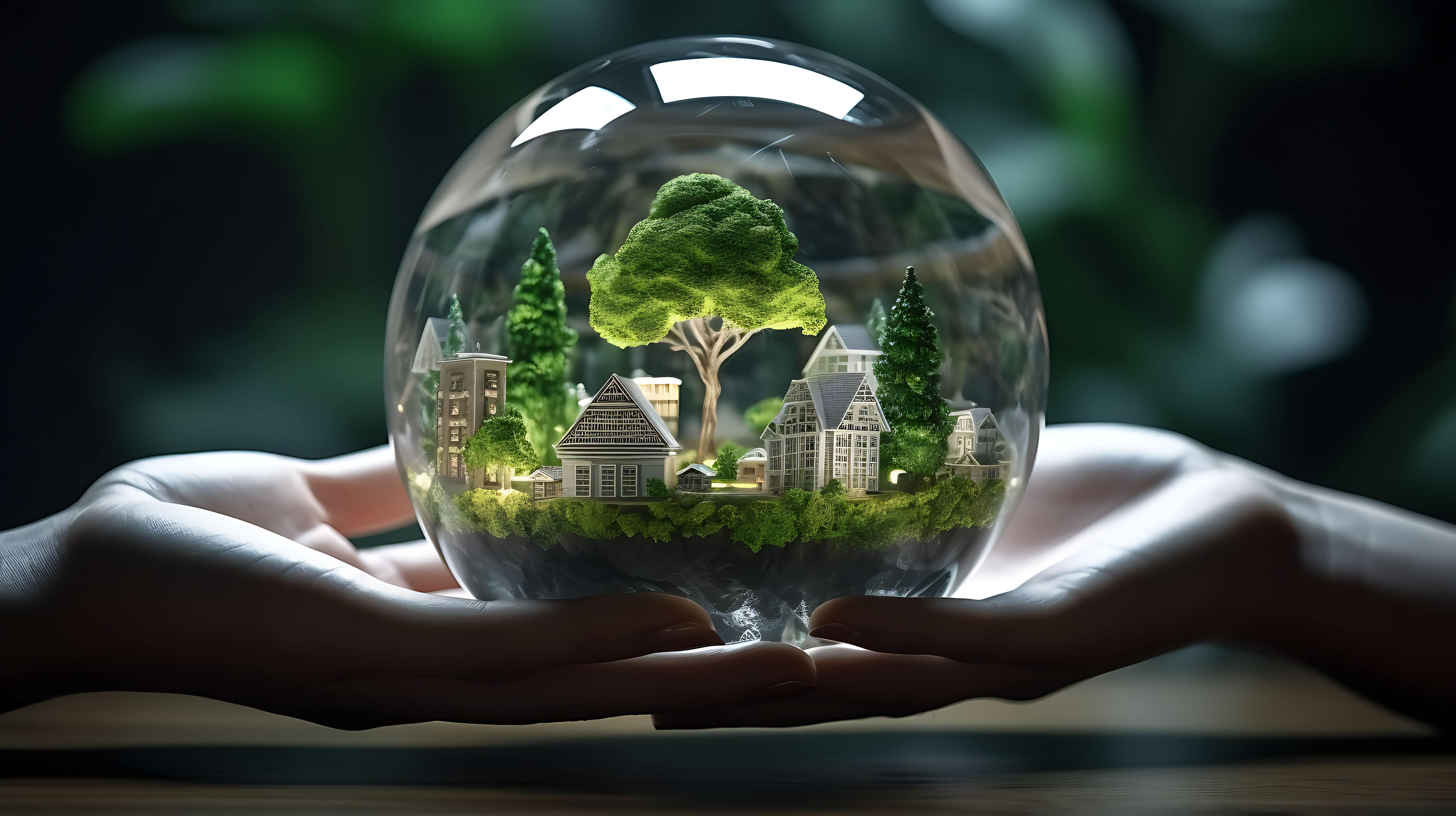How Are Sustainable Projects Reshaping The Real Estate Landscape in India?
India has been a pacesetter for sustainable development, recognising its importance for a greener future. With the aid of green financing, the country has made significant developments in renewable energy, green transport, and, most importantly, green building technology. The transition towards sustainability opens doors to many environmental benefits and economic viability.
Exploring The Green Horizon
India’s attitude towards the environment was clearly displayed through the considerable increase in Green Bonds issuance in the global market. Interestingly, as a part of strategic financing, the Reserve Bank of India (RBI) has proposed to set aside 2.5% of its annual GDP for green finance. They expect to provide additional support to set up eco-friendly sustainable projects.
The acceptance of this proposal would boost the local finance system and fortify other sustainable development objectives and protections that are already addressed by the country.
India’s Climate Finance Strategy Includes Green Bonds
The 26th United Nations Climate Change Conference (COP26) witnessed India’s pledge to make 2070 – a year of net-zero emissions. However, to make this pledge a reality, India will need to follow-through the following changes by 2030:
- Reduce 45% of emissions intensity
- Reduce 50% of electricity generated from renewable sources

To overcome such challenges, several initiatives, such as the following, were launched by the Indian government:
- National Infrastructure Pipeline (NIP)
- National Monetization Pipeline (NMP)
- PM Gati Shakti Plan
- National Logistics Policy (NLP)
Green finance is fundamental to the development of sustainable infrastructure in India, especially in energy-efficient buildings, renewable energy, and clean transport. Although renewable energy has made significant strides, financing issues remain. Green bonds, green equity, and carbon markets and trading are all part of the financial instruments that India has invested in to mitigate this problem. These investments will flow into projects for environmental sustainability and provide necessary support for the transition of the economy to a low-carbon state.
India achieved a major milestone by launching the country’s first sovereign green bond of INR 80 billion (around $980 million) on January 25, 2023. On February 9, 2023, the Indian government declared another offering of 80 billion INR into green bonds by the sovereign. By April 2023, India had issued 63 green bonds to the global green bond market.
Sustainable Infrastructure is a Key to India’s Future
India’s sustainable infrastructure segment cannot be narrowed down to a single sector, as it has been developed in many sectors. The National Logistics Policy (NLP) has established a new eco-friendly standard in sustainable logistics, incorporating eco-friendly packaging, the utilisation of renewable energy in supply chains, and the implementation of robust recycling programmes.
For example, in transportation, multi-modal logistics parks are designed to cut emissions by 12 percent with the help of larger trucks and increased railway transport. Eco-friendly city metro lines emphasise green policy measures with platinum-rated green stations and lofty renewable energy goals. Moreover, as part of its transformation plan, the Delhi-Ghaziabad-Meerut corridor of the Regional Rapid Transit System will integrate 70 percent solar power.

ACE Group: A Pioneer in Sustainable Development
When it comes to the sustainable development sector, ACE Group has made its mark with innovative projects. These projects demonstrate the dedication towards building green infrastructure that benefits the country.
Commercial projects such as ACE Capitol and ACE 153 stand out in the real estate sector of Noida for their innovative and sustainable designs. While providing luxurious and spacious retail and office spaces, these projects offer the following:
- Incorporation of green building practices
- Advanced energy-efficient systems
- Water conservation measures
Such eco-friendly built projects are the foundation of Noida’s rapid progress and are key factors behind the modernization and innovation of the city.
ACE 153
This commercial property in Sector 153 Noida stands as a uniquely built structure offering retail and office spaces. As an IGBC-certified project, sustainability is a primal factor for ACE 153. With energy efficiency, water conservation, and indoor environmental quality in focus, ACE 153 has proven its commitment to sustainability. Moreover, the project’s location and its superior connectivity make it an ideal benchmark project for investors in the commercial real estate sector.
ACE CAPITOL
This commercial project offering office space in Noida is another green project by ACE Group located in Sector 132. ACE Capitol is an IGBC-certified project that has transformed the cityscape with its inspirational and innovative commercial spaces. Eco-friendly features such as eco-management, e-charging facilities, and material efficacy are part of the many initiatives taken to make ACE Capitol one of the most noteworthy sustainable projects in Noida.

Simply put, it’s notable that the Indian real estate sector is going through a quite significant change where sustainability is of paramount importance. The application of nature-inspired design, renewable energy resources, and eco-friendly materials is changing the way we live and work towards a sustainable future.
The growth of green certifications, for example, LEED or IGBC, has placed India on the map of eco-friendly construction, with over 8 billion sq ft of LEED-certified space. The market’s strengthening move towards renewables, as shown by the 15 GW solar rooftop projection by 2024, is a sure sign that society is altogether looking to minimise environmental damage.
Efforts to save water, which have seen over 1 million rainwater harvesting systems installed, show that India is ready to face this water scarcity head-on. Moreover, the establishment of healthy and livable communities through ensuring proper green space ratios and the provision of walkable city initiatives aims at reducing the reliance on cars as a mode of transport and promotes healthy ways of living.

Setting up indoor or communal gardens, separate compost plants, and charging facilities for EVs are some of the green amenities being offered by real estate projects in a bid to meet the changing demands of environmentally sensitive consumers.
The Indian real estate market has been projected to have a CAGR of 18.7% from 2020 to 2030, with the growth being attributed to initiatives by the government, technological integration, sustainability policies, and increased investments. The sector is full of investment opportunities because of government support, sustainability, and the involvement of the latest technologies. The conditions of the market are transforming dynamically, which might bring more interesting prospects. This, in turn, may draw more investments.